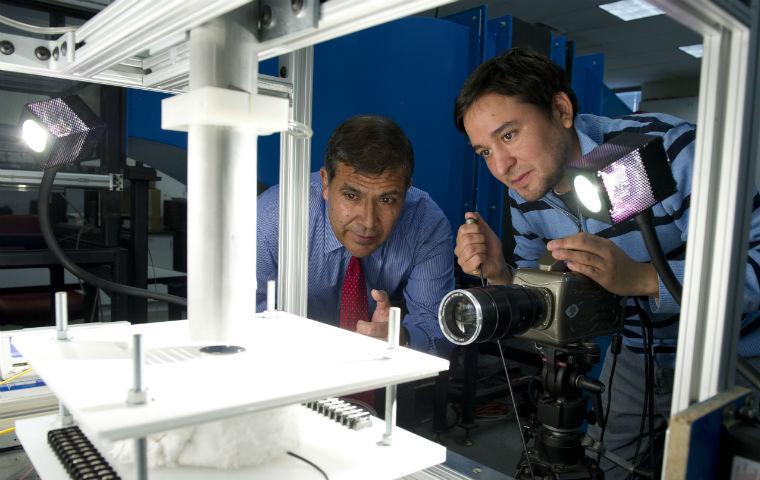
Unbelievable Opportunities
Deepa Arora
The incoming dean of the School of Engineering, Alfonso Ortega, begins his new role August 1. He recently shared some of his thoughts on the future of STEM, Jesuit education, and his "humble beginnings."
What excites you about the move to Santa Clara and California?
Santa Clara University is a Catholic University and that's very appealing to me. I spent 11 years at Villanova University and have come to treasure the culture and mission of Catholic universities. I went to graduate school at Stanford and spent more than five years in the Bay Area. I know the Bay Area very, very well.To be at a Catholic, Jesuit University in the middle of Silicon Valley, is very exciting.
What were the formative influences in your life that led to your becoming an engineer?
I'm a second generation American. My father was a blue collar brick layer, my mother is a homemaker, so I come from a humble background. My formative influences really were related to my liking mathematics and technical subjects in school. I saw my older brother who is second in a family of 11 kids become a mechanical engineer.
My father didn't really view a life as a lawyer or as a you know anything other the practical area as being worthwhile ! That had an influence on me as well. I love what I do. I love being an engineer.
What advice do you have for engineering students today?
Know who you are as an individual. You need to know who you are as a person. You need to start recognizing what you're good at and what your strengths are. You need to start forgiving yourself for the things that you're not so good at. You need to start realizing that the way to have a happy and productive career is usually by steering your career in the direction that will maximize the use of the things that you're good at.
It's an incredibly exciting time to be going into engineering. Right now there are so many exciting opportunities for engineers to be contributing to the unbelievable advances in what I call the "interconnectivity of everything." And there's all these challenges that we have facing the world and society - climate change, energy and water sustainability and so forth. Engineering students have unbelievable opportunities to make a difference in the world. I just wish I had another 40 years to be an engineer!
What are the three objectives that describe you?
I'm a very hard worker. I am very passionate about what I do. I love being an engineer.And I think that one of the greatest gifts I can give back to society is to educate the students of tomorrow.
What was your favorite engineering project?
When I was a very young engineer I got to go with Sandia National Laboratories into a semi-active volcano in Hawaii and we got to drill into the core of the volcano to try to artificially create a geothermal well. This was very early in my career, but it still ranks as one of the most amazing experiences I've ever had as an engineer.
What does the future of STEM look like to you?
The future of STEM looks like an increasingly interdisciplinary global enterprise. It will involve people working with people all over the world and it will be a more diverse enterprise involving people from all walks of life and from all backgrounds. STEM today is a blurring of what we traditionally call "engineering" and what we traditionally call "science" and mathematics.
What does Jesuit mean to you?
Jesuits were very influential when I was growing up as a child. I grew up next to a Jesuit high school in El Paso, Texas. The Jesuits there were among my earliest friends and mentors. I’ve always respected that the Jesuit order encourages and emphasizes education. The coexistence of Catholic beliefs with scholarly thinking.
As a thinking person myself I've always thought about how we reconcile our beliefs with our scientific and engineering education. Jesuit thinking and their emphasis on education has helped me to be a person of faith, and also a person of science and engineering.